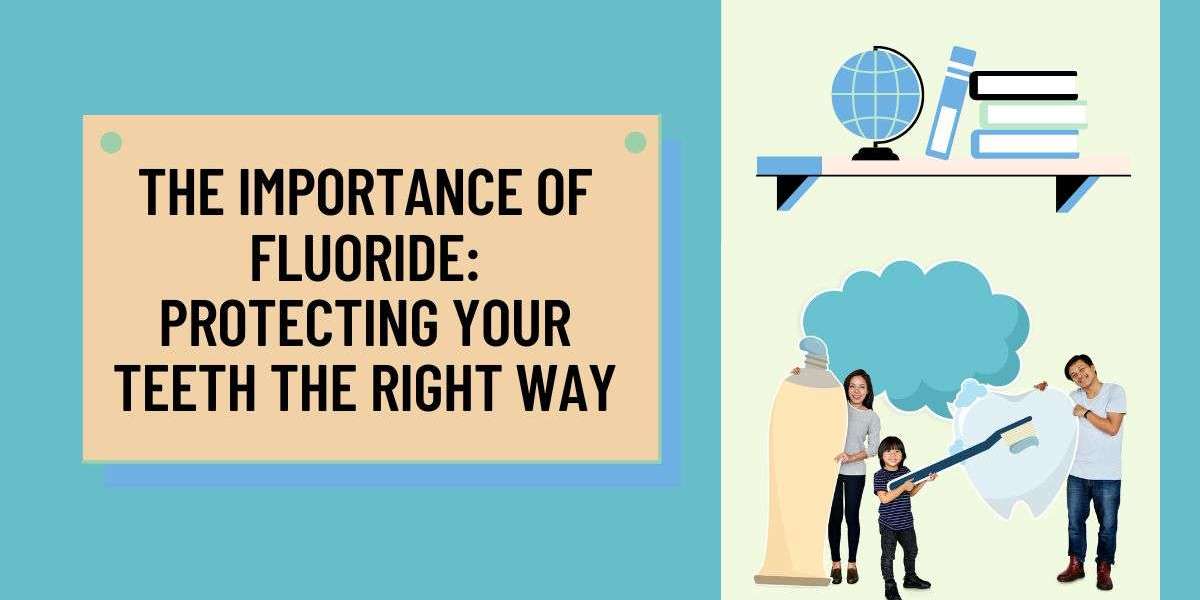Fluoride is one of the most essential minerals for maintaining strong, healthy teeth — yet many people aren’t aware of how it works or why it’s so important. Whether you are dealing with sensitivity, frequent cavities, or simply want to strengthen your enamel, understanding fluoride can change the way you care for your smile. For anyone searching for a dentist near me, knowing the role of fluoride can help you make better decisions about your oral health.
What Is Fluoride and Why Does It Matter?
Fluoride is a naturally occurring mineral found in water, soil, and certain foods. It has been studied for decades and is widely used in dental care because of its ability to strengthen enamel — the protective outer layer of your teeth.
Enamel is strong, but it isn’t invincible. Every day, your teeth go through a process called demineralization, where acids from food, drinks, and bacteria weaken the enamel. Fluoride helps counter this by kickstarting the remineralization process, making teeth even stronger than before.
How Fluoride Strengthens Your Teeth
1. Remineralization of Enamel
Fluoride acts like a repair tool. When enamel begins to weaken, fluoride helps restore lost minerals and rebuild the structure of the tooth. This makes enamel more resistant to acid attacks and decay.
2. Reduces the Risk of Cavities
Fluoride has antibacterial properties that help reduce harmful bacteria in the mouth. This decreases plaque formation and lowers your chances of developing cavities — especially important for children and adults prone to tooth decay.
3. Protects Your Teeth Long-Term
Strong enamel is the foundation of long-term dental health. Fluoride ensures that your teeth not only stay strong but also remain resilient as you age. It helps prevent early tooth decay, enamel erosion, and sensitivity.
Sources of Fluoride
1. Fluoridated Toothpaste
Most toothpaste brands contain fluoride because it is the easiest and most effective way to strengthen enamel daily. Brushing twice a day ensures your teeth receive consistent protection.
2. Fluoride Mouthwash
If you have recurring cavities or sensitivity, a fluoride rinse can offer additional protection. Dentists often recommend it for patients with higher risks of tooth decay.
3. Professional Fluoride Treatments
Dental clinics offer concentrated fluoride applications during routine cleanings. These treatments provide a higher dose of fluoride and are ideal for:
- People with frequent cavities
- Children with developing teeth
- Patients with braces
- Individuals with sensitive or weakened enamel
4. Fluoridated Drinking Water
Many communities include fluoride in their water systems. Drinking fluoridated water is one of the most cost-effective and beneficial ways to protect teeth, especially for children.
Who Needs Fluoride the Most?
While everyone benefits from fluoride, certain groups need it more than others:
Children
Developing teeth are more vulnerable to cavities. Fluoride helps strengthen enamel as it forms, offering lifetime protection.
Adults with Dry Mouth
Reduced saliva increases acid exposure, making the enamel more susceptible to decay. Fluoride helps counteract this vulnerability.
People with Gum Disease
Gum recession exposes the root surfaces, which are softer and more prone to decay. Fluoride helps protect these areas.
Individuals with Frequent Cavities
Some people naturally have weaker enamel or higher acid levels in their mouth. Fluoride provides essential reinforcement in these cases.
Is Fluoride Safe? Understanding Common Myths
There are many myths surrounding fluoride, but decades of research and scientific data strongly support its safety and effectiveness. The amount of fluoride in toothpaste, water, and dental treatments is carefully regulated and proven to be safe for both children and adults.
Some common myths include:
- “Fluoride is toxic.”
In reality, fluoride is only harmful in extremely large amounts — far beyond what is used in dental products. - “Children should not use fluoride toothpaste.”
Children can safely use fluoride toothpaste, but only a pea-sized amount is recommended. - "Fluoride causes health issues."
Studies show no verified link between regulated fluoride use and health problems.
Fluoride remains one of the most effective and safest tools in preventive dental care.
How to Use Fluoride the Right Way
Here are some dentist-approved tips to maximize the benefits of fluoride:
- Brush twice a day with fluoride toothpaste
- Use a fluoride mouth rinse if recommended
- Don’t rinse your mouth with water immediately after brushing
- Get professional fluoride treatments if you have frequent cavities
- Drink fluoridated water when available
Following these steps keeps your teeth strong, healthy, and resistant to decay.
Conclusion
Fluoride is a powerful, proven tool for protecting your smile. By strengthening enamel, preventing cavities, and aiding in remineralization, it plays a vital role in long-term dental health. If you want personalized guidance on fluoride use or are looking to improve your oral hygiene routine, consider visiting a dentist close to me for expert advice and professional care.



